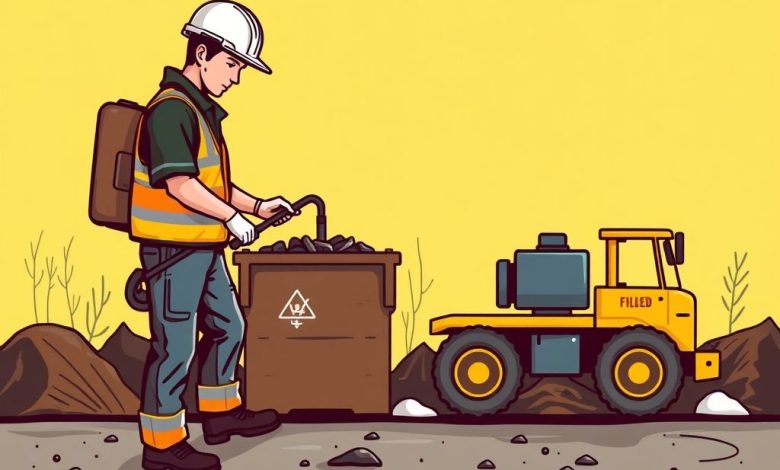Field Service Management for Toxic Waste Handling

Introduction
Field Service Management (FSM) is a critical component of modern business operations, particularly in industries dealing with hazardous materials such as toxic waste handling. Effective FSM ensures efficient scheduling, resource allocation, and job execution while maintaining safety standards and regulatory compliance. In this article, we’ll explore the importance of FSM in toxic waste management, its challenges, and best practices for implementation.
- The Importance of Field Service Management in Toxic Waste Handling
- Challenges in Toxic Waste Handling Field Service Management
- Best Practices for Implementing Field Service Management in Toxic Waste Handling
- Invest in Specialized FSM Software
- Implement Real-Time Tracking
- Develop Comprehensive Safety Protocols
- Automate Scheduling and Dispatch
- Regular Training and Updates
- Continuous Monitoring and Improvement
- Conclusion
The Importance of Field Service Management in Toxic Waste Handling
Toxic waste handling requires specialized equipment, trained personnel, and adherence to strict safety protocols. FSM plays a crucial role in ensuring that these requirements are met consistently across multiple job sites. By centralizing operations management, FSM systems enable:
- Real-time tracking of equipment and personnel
- Automated scheduling based on job complexity and resource availability
- Compliance monitoring and reporting
- Improved customer service through faster response times
Challenges in Toxic Waste Handling Field Service Management
Implementing an effective FSM system for toxic waste handling comes with unique challenges:
Regulatory Compliance
Toxic waste handling is heavily regulated, with strict guidelines set by environmental protection agencies. FSM systems must integrate these regulations into their workflows to ensure compliance at all levels.
Safety Considerations
The primary concern in toxic waste handling is the safety of personnel and the general public. FSM systems must incorporate safety protocols into their scheduling and dispatch processes.
Equipment Maintenance
Specialized equipment used in toxic waste handling requires regular maintenance to ensure operational efficiency and safety. FSM systems must track equipment usage and maintenance schedules effectively.
Best Practices for Implementing Field Service Management in Toxic Waste Handling
To overcome the challenges and maximize benefits, consider the following best practices:
Invest in Specialized FSM Software
Choose an FSM solution designed specifically for hazardous materials handling. These solutions typically include features such as:
- Job classification based on toxicity levels
- Automated safety checklists
- Integration with environmental monitoring devices
Implement Real-Time Tracking
Utilize GPS-enabled devices and mobile apps to track vehicles, equipment, and personnel in real-time. This allows for efficient routing and ensures that resources are always accounted for.
Develop Comprehensive Safety Protocols
Create detailed safety procedures that are integrated into the FSM system. Ensure all personnel undergo regular training on these protocols and the FSM system itself.
Automate Scheduling and Dispatch
Implement AI-powered scheduling algorithms that take into account job complexity, resource availability, and safety considerations. This ensures optimal allocation of resources while maintaining safety standards.
Regular Training and Updates
Provide ongoing training to field technicians on new equipment, safety procedures, and FSM system updates. This ensures that personnel can effectively utilize the FSM system and maintain high standards of service.
Continuous Monitoring and Improvement
Implement a feedback loop within the FSM system to continuously monitor performance metrics such as response times, job completion rates, and safety incident reports. Use this data to identify areas for improvement and optimize processes accordingly.
Conclusion
Field Service Management plays a crucial role in ensuring efficient and safe toxic waste handling operations. By implementing specialized FSM software, investing in real-time tracking technology, developing comprehensive safety protocols, automating scheduling and dispatch, providing regular training, and continuously monitoring and improving processes, organizations can significantly enhance their toxic waste management capabilities.
As the industry continues to evolve with technological advancements, it’s essential for field service managers to stay informed about emerging trends and best practices in FSM for hazardous materials handling. By doing so, they can ensure not only operational efficiency but also the highest levels of safety and compliance in their toxic waste management operations.